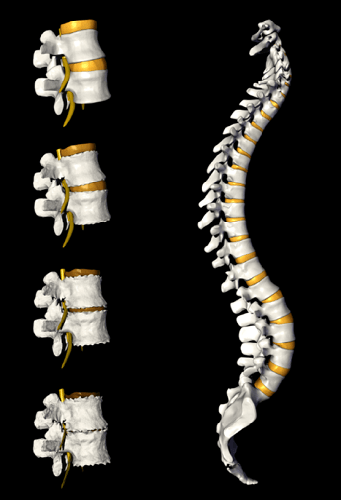Different Stages of Degenerative Disc Disease

Degenerative disc disease is a term used to describe spinal disc changes that naturally occur as one age. Spinal discs are the soft discs that separate your vertebrae and act as shock absorbers for the spine, allowing your spine to bend, flex, and twist. Spinal discs have a minimal blood supply and, therefore, poor reparative ability. Here are the different stages of the degenerative disc disease and how they affect your spinal discs:
Stage One
Due to an injury or everyday wear and tear, you may experience acute back pain. As a result, you may struggle to maintain your daily routines without pain. At this point, there is little to no effect on the bony structure of the spine. The spinal disc may bulge, have painful tears, or simply lose fluid and become less soft and flexible.
Stage Two
The second stage of degenerative disc disease is characterized by a long, relative instability of the affected segment of your spine. You may find that you experience intermittent periods of back pain. During stage two you may lose height in your vertebral discs due to dehydration and thinning of your vertebral discs. Typically, there are little or no spinal changes of the bony structure during stage two.
Stage Three
During stage three, you will begin to have bony changes in your spine. Bony spurs may develop at the edge of your vertebrae, which can put painful pressure on the spinal cord. Stage three also brings further disc thinning.
Stage Four
In stage four, you will have minimal disc material remaining. In addition, severe bony changes of the vertebrae may be present. At this stage, your vertebrae may be almost bone on bone due to the reduced thickness of your spinal discs. Disc replacement surgery or vertebral fusion surgery may be required.
For the diagnosis and treatment of your back pain, turn to the care of Dr. Perry at the Spine Institute Of Nevada. Dr. Perry is a board-certified surgeon with specialty training in adult and pediatric spinal surgery. Begin your path to a pain-free life by calling us at 702-239-3787.
